#burhan karkoutly
Photo


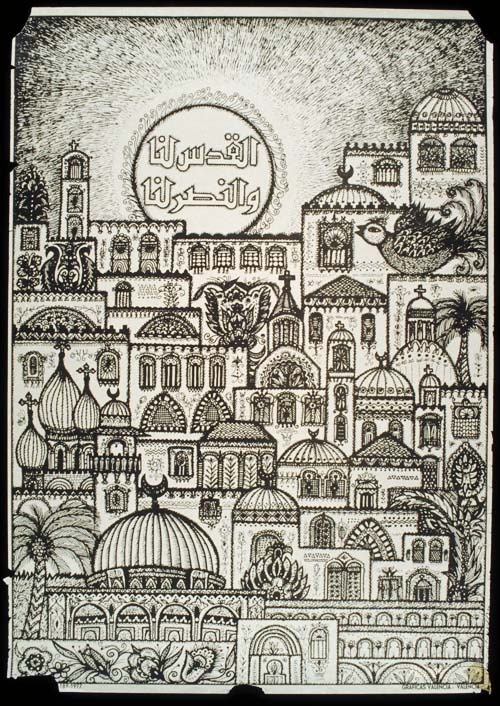
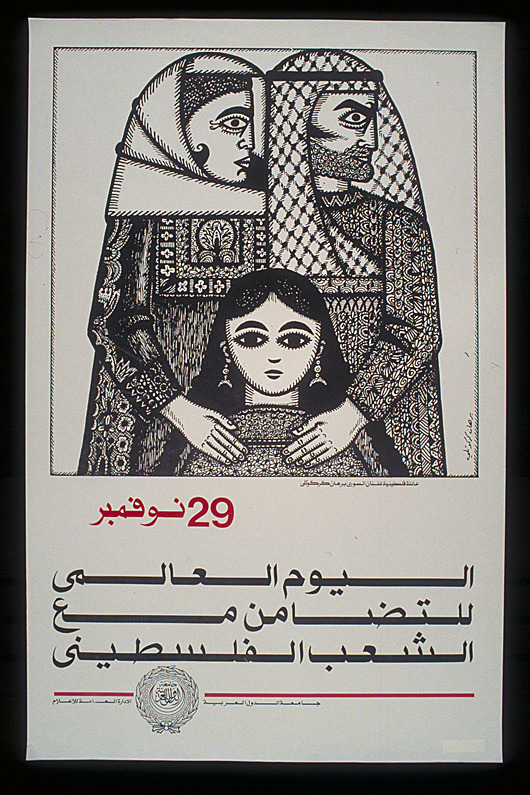
posters by Syrian graphic artist Burhan Karkoutly, from the Palestine Poster Project archives
(they read respectively - Long Live Solidarity with Palestine, The Palestinian Revolution Lives, Jerusalem Is Ours - Victory Is Ours, November 29 - International day of solidarity with the Palestinian people)
5K notes
·
View notes
Text
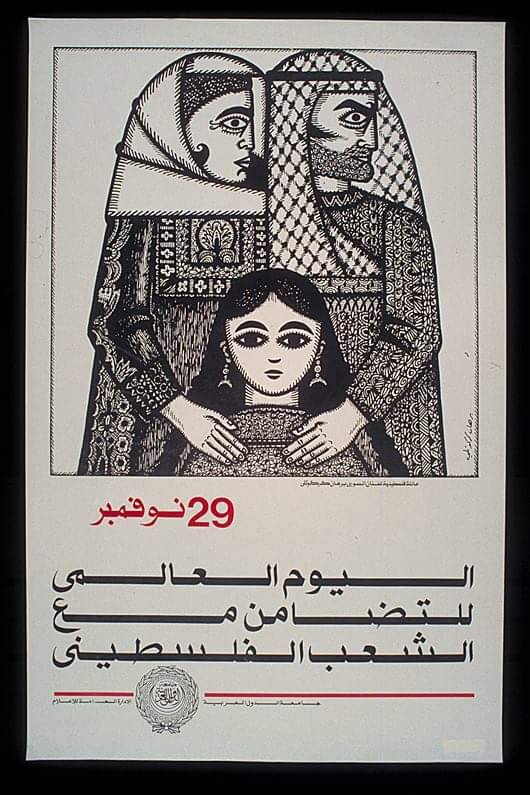
November 29: International Day of Solidarity with the Palestinian People.
On November 29, 1947, the Truman administration rammed the partition of Palestine through the United Nations General Assembly. At a time when most of Africa and the Caribbean was still under West European colonial rule, the racist settler state of Israel was implanted at the crossroads of Asia and Africa with the votes of only three states on those continents. The "African" votes came from the white settler regime of South Africa and Liberia, which was virtually a colony of the Firestone Rubber Company. The Liberian ambassador complained openly of the pressure exerted by the State Department on his and other governments.
In the days before the vote, the Philippines' representative General Carlos P. Romulo stated: "We hold that the issue is primarily moral. The issue is whether the United Nations should accept responsibility for the enforcement of a policy which is clearly repugnant to the valid nationalist aspirations of the people of Palestine. The Philippines Government holds that the United Nations ought not to accept such responsibility". After a phone call from Washington, Romulo was recalled and the Philippines' vote changed.
The Siamese delegation had its credentials revoked after it opposed partition in committee on Nov. 25. The largest bloc of yes votes came from 13 Latin American countries, all whom were subject to extreme pressure from the United States. Haiti, a country devastated by US military and economic intervention, was told that a $1 million dollar loan from the United States depended on its voting for partition.
-- Bill Dores
Poster by Burhan Karkoutly (1984)
139 notes
·
View notes
Text
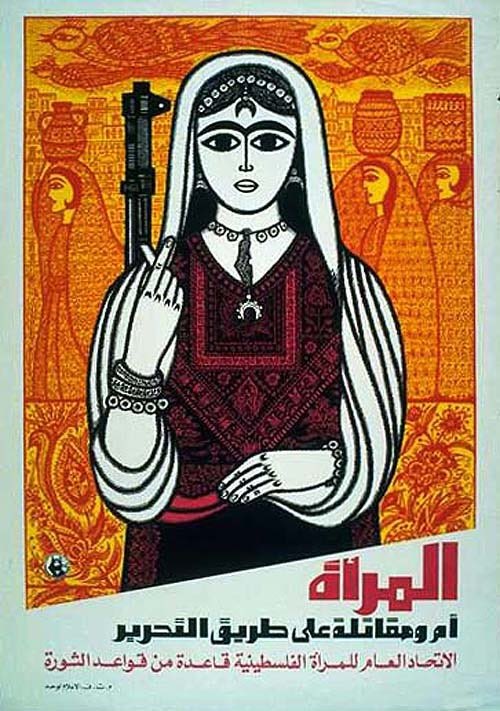
Happy International Working Women’s Day!
Poster by Burhan Karkoutly, General Union of Palestinian Women, 1978.
1 note
·
View note
Photo
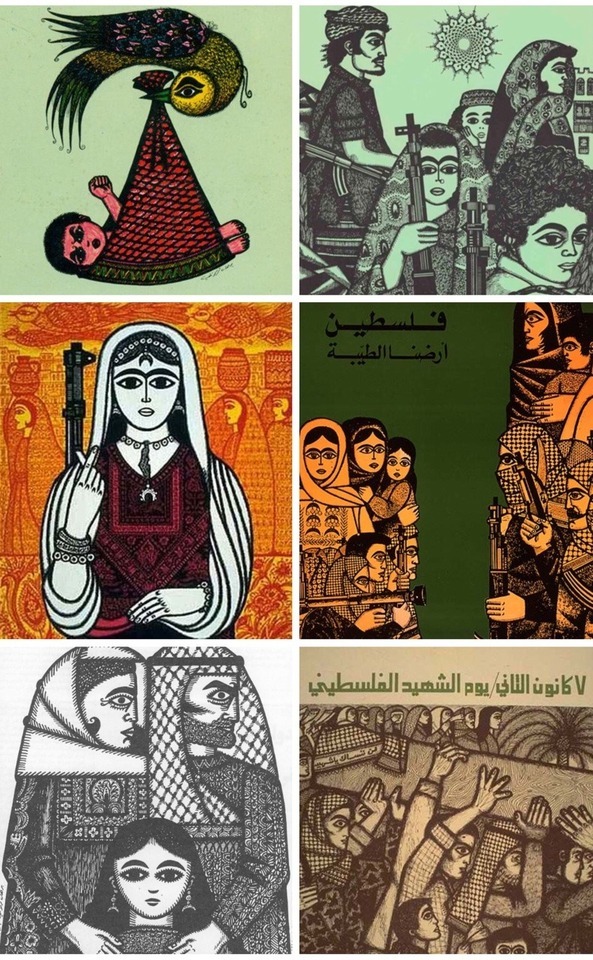
Select pieces of Syrian artist Burhan Karkoutli’s artwork for Palestine in the 70s and 80s.
9 notes
·
View notes
Photo
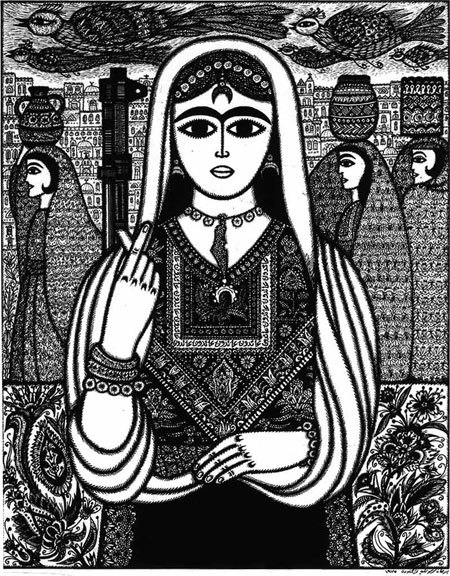
“Untitled” - 1975 by Burhan Karkoutly
39 notes
·
View notes
Photo
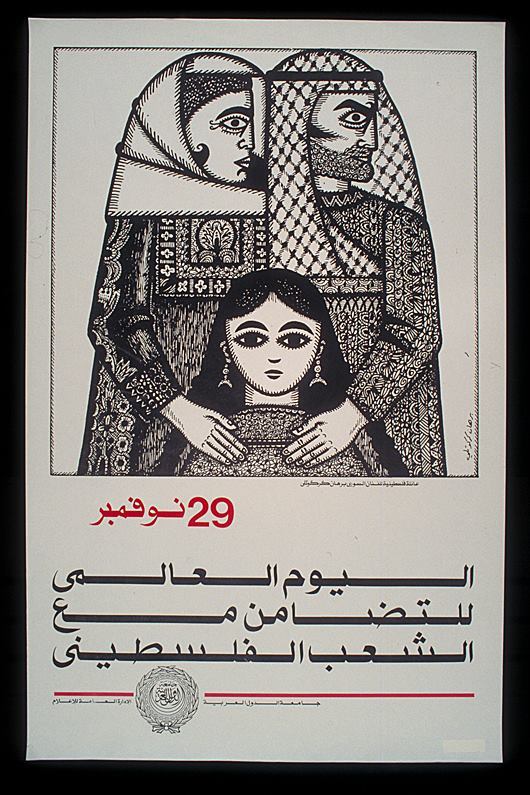
November 29: International Day of Solidarity with the Palestinian People
71 years ago today, the Truman administration rammed the partition of Palestine through the United Nations General Assembly. At a time when most of Africa and the Caribbean was still under West European colonial rule, the racist settler state of Israel was implanted at the crossroads of Asia and Africa with the votes of only three states on those continents. The “African” votes came from the white settler regime of South Africa and Liberia, which was virtually a colony of the Firestone Rubber Company. The Liberian ambassador complained openly of the pressure exerted by the State Department on his and other governments.
In the days before the vote, the Philippines’ representative General Carlos P. Romulo stated: “We hold that the issue is primarily moral. The issue is whether the United Nations should accept responsibility for the enforcement of a policy which is clearly repugnant to the valid nationalist aspirations of the people of Palestine. The Philippines Government holds that the United Nations ought not to accept such responsibility”. After a phone call from Washington, Romulo was recalled and the Philippines’ vote changed.
The Siamese delegation had its credentials revoked after it opposed partition in committee on Nov. 25. The largest bloc of yes votes came from 13 Latin American countries, all whom were subject to extreme pressure from the United States. Haiti, a country devastated by US military and economic intervention, was told that a $1 million dollar loan from the United States depended on its voting for partition.
– Bill Dores
Poster by Burhan Karkoutly (1984)
185 notes
·
View notes
Photo

November 29: International Day of Solidarity with Palestinian People
70 years ago today, the Truman administration rammed the partition of Palestine through the United Nations General Assembly. At a time when most of Africa and the Caribbean was still under West European colonial rule, the racist settler state of Israel was implanted at the crossroads of Asia and Africa with the votes of only three states on those continents. The "African" votes came from the white settler regime of South Africa and Liberia, which was virtually a colony of the Firestone Rubber Company. The Liberian ambassador complained openly of the pressure exerted by the State Department on his and other governments.
In the days before the vote, the Philippines' representative General Carlos P. Romulo stated: "We hold that the issue is primarily moral. The issue is whether the United Nations should accept responsibility for the enforcement of a policy which is clearly repugnant to the valid nationalist aspirations of the people of Palestine. The Philippines Government holds that the United Nations ought not to accept such responsibility". After a phone call from Washington, Romulo was recalled and the Philippines' vote changed.
The Siamese delegation had its credentials revoked after it opposed partition in committee on Nov. 25. The largest bloc of yes votes came from 13 Latin American countries, all whom were subject to extreme pressure from the United States. Haiti, a country devastated by US military and economic intervention, was told that a $1 million dollar loan from the United States depended on its voting for partition.
-- Bill Dores
Poster by Burhan Karkoutly (1984)
#FreePalestine#29November#Palestine#occupation#Israel#imperialism#colonialism#Middle East#apartheid#UNGA
141 notes
·
View notes

